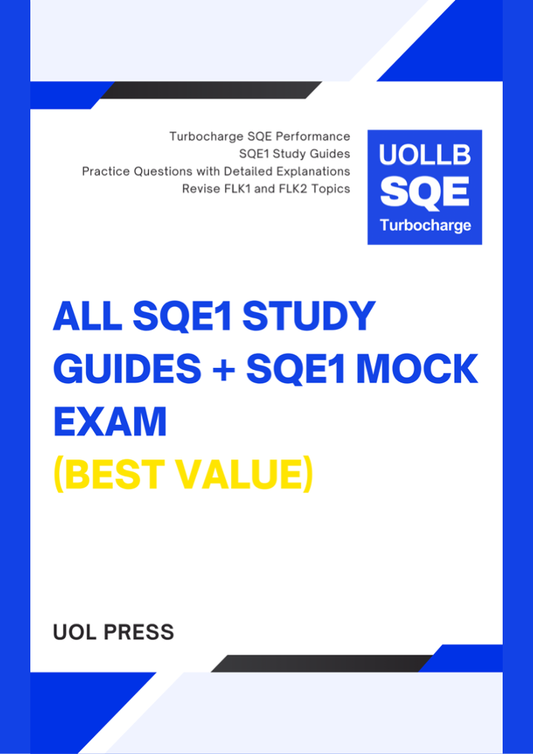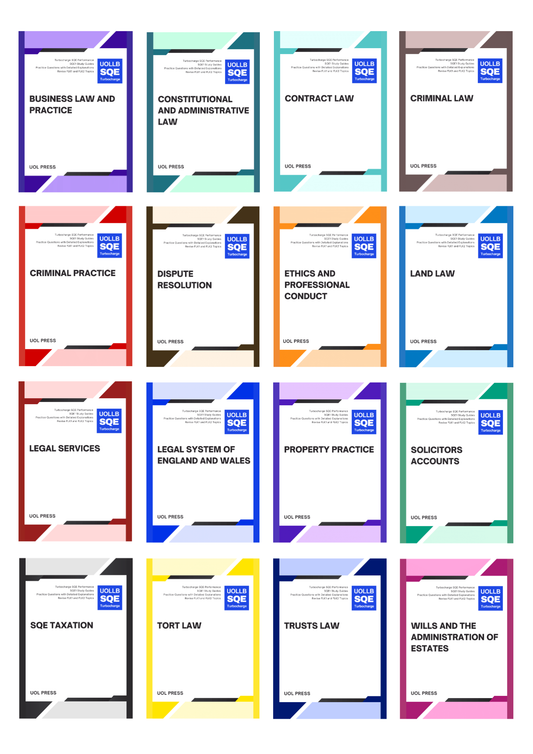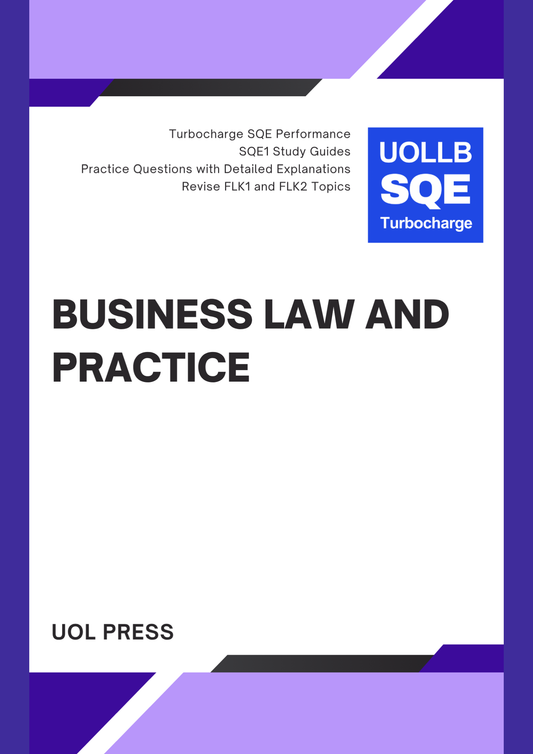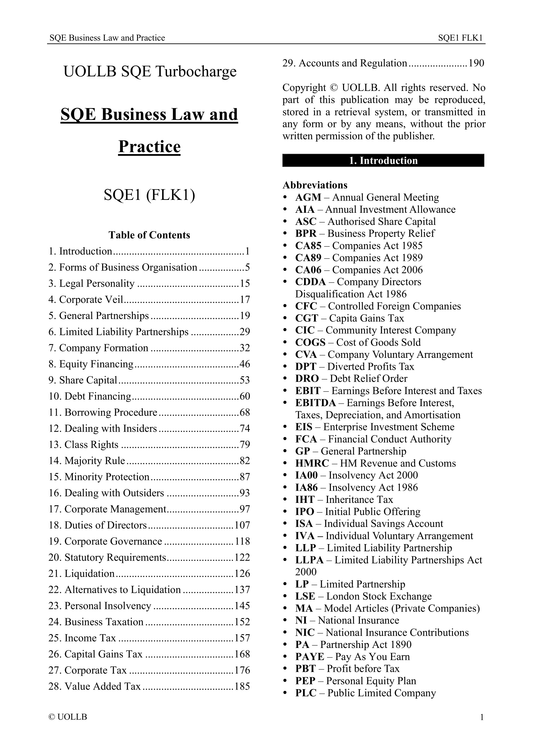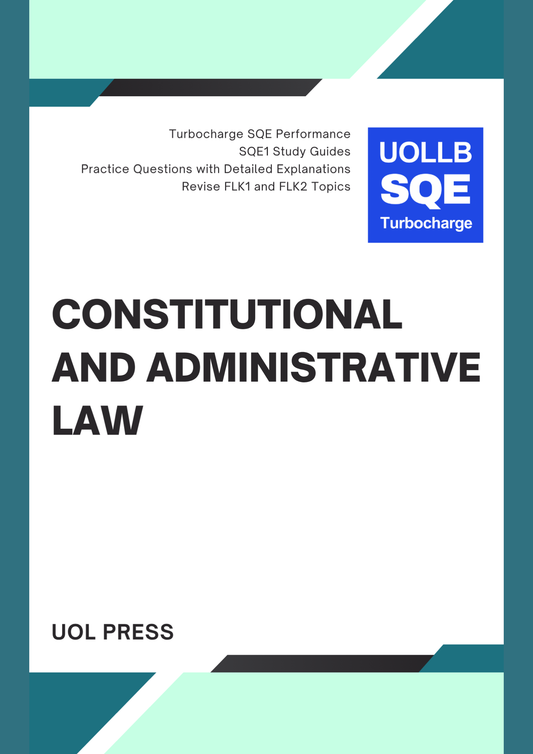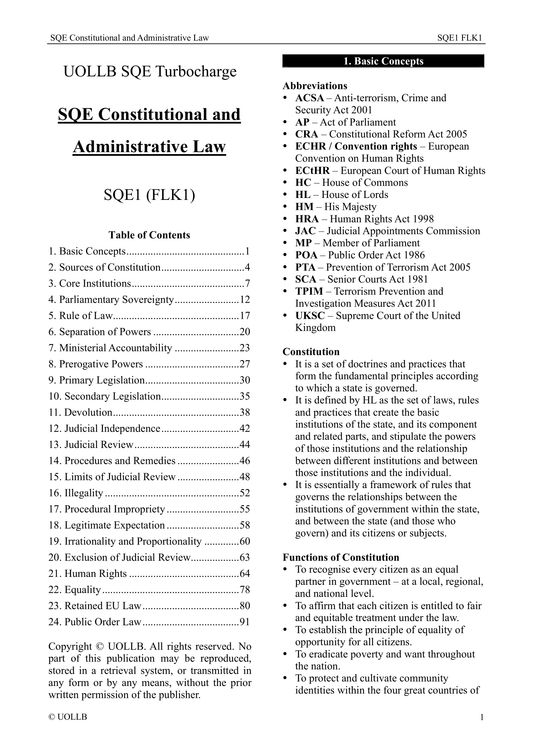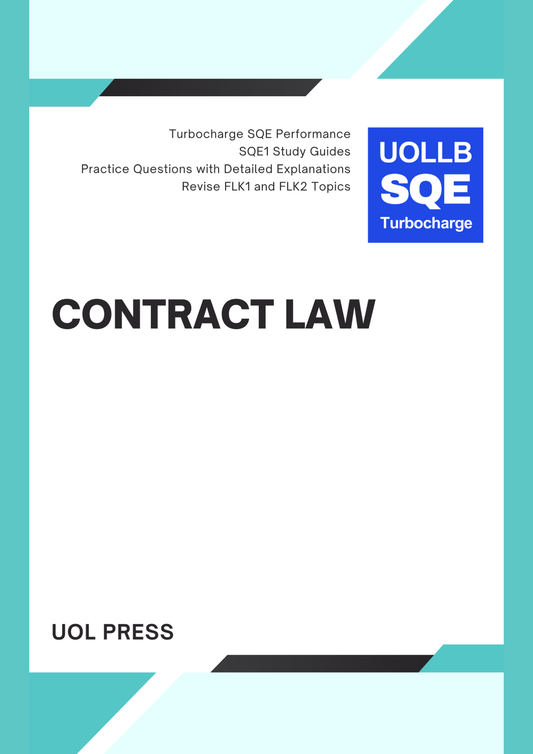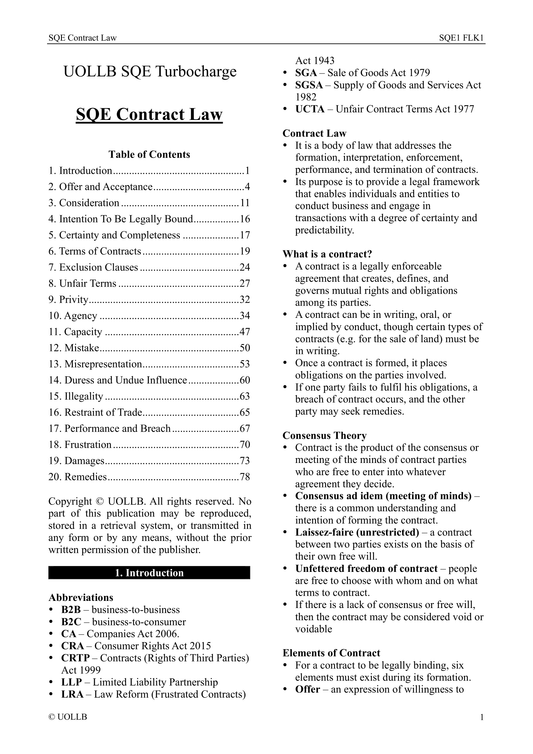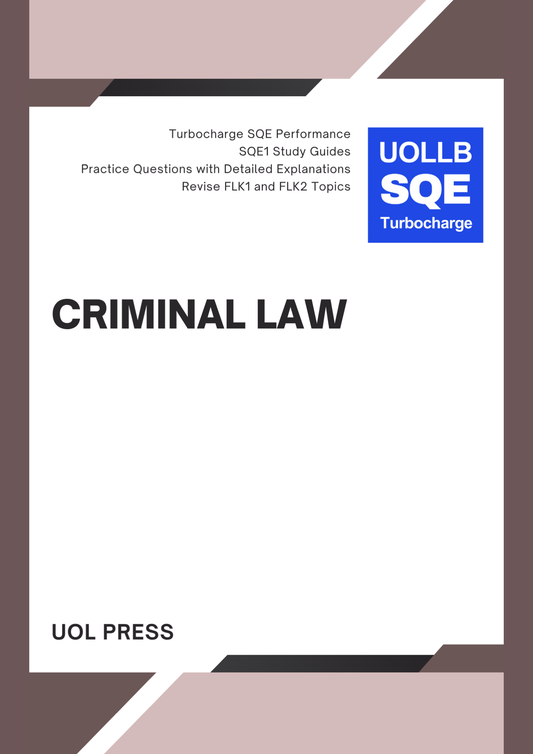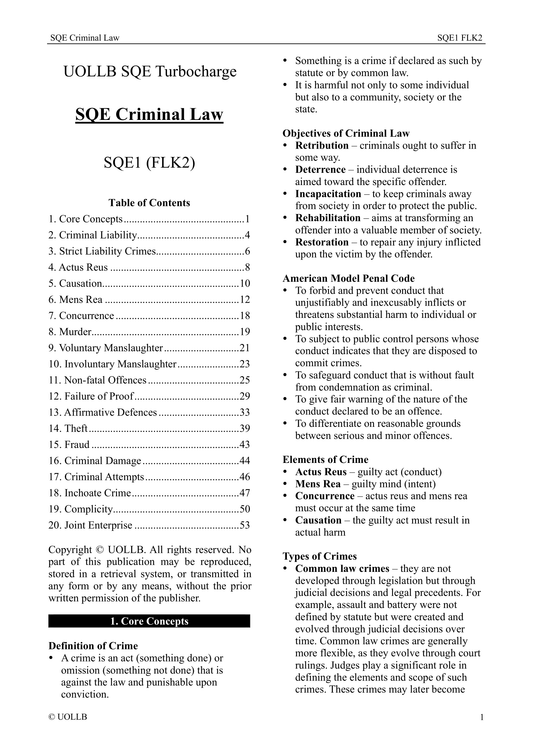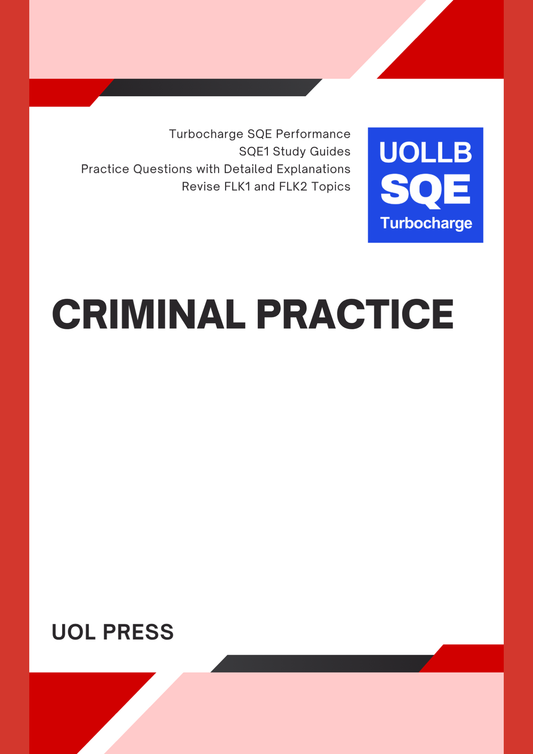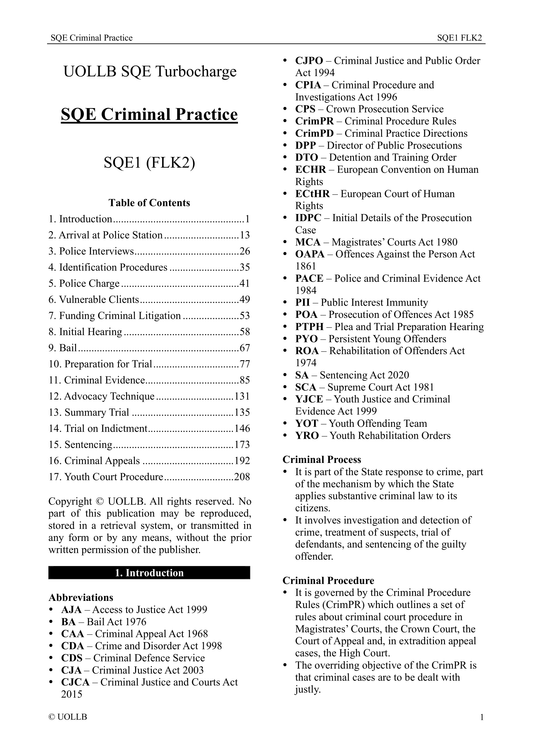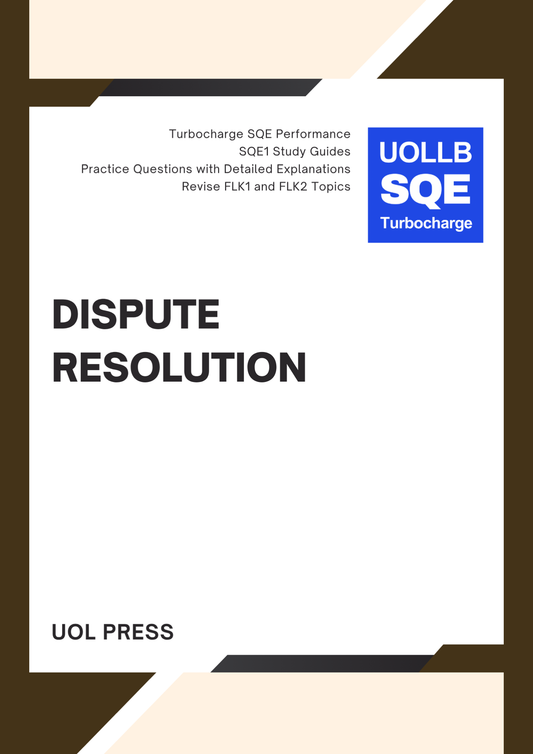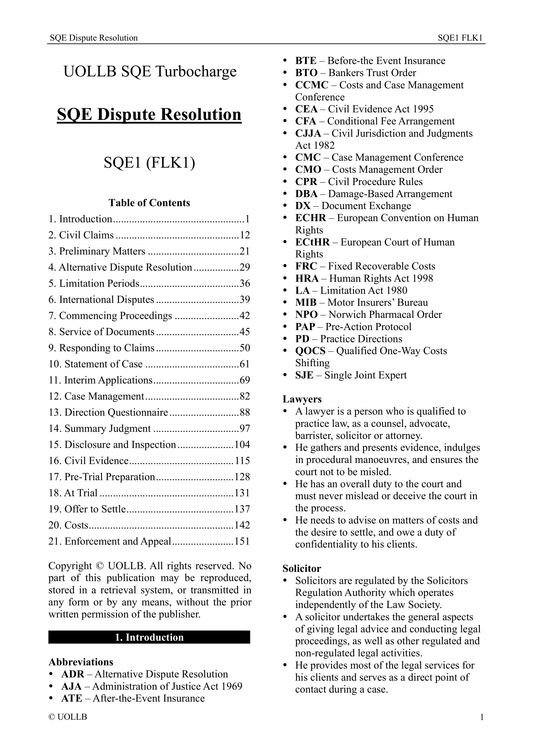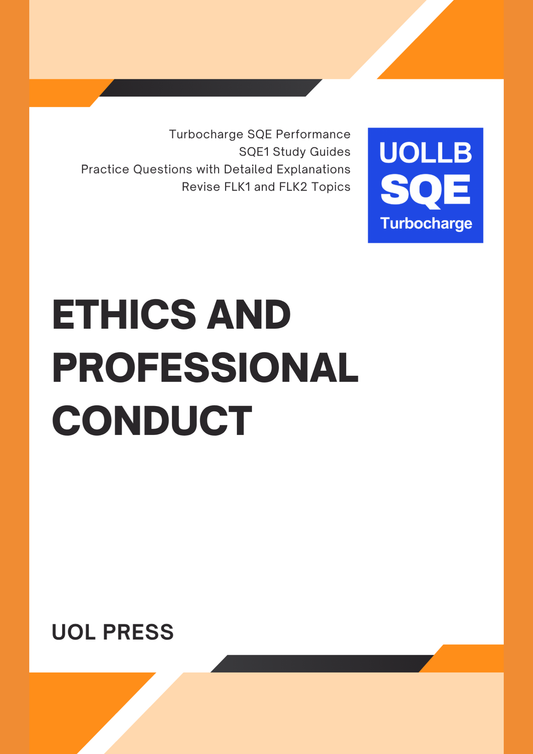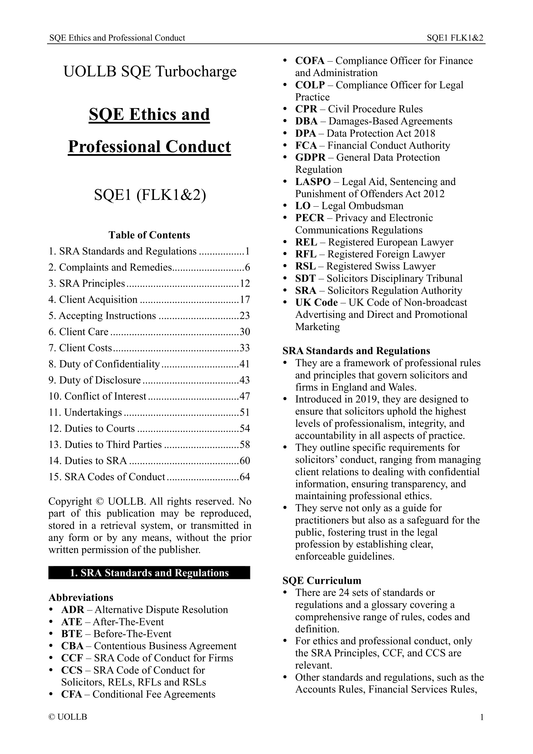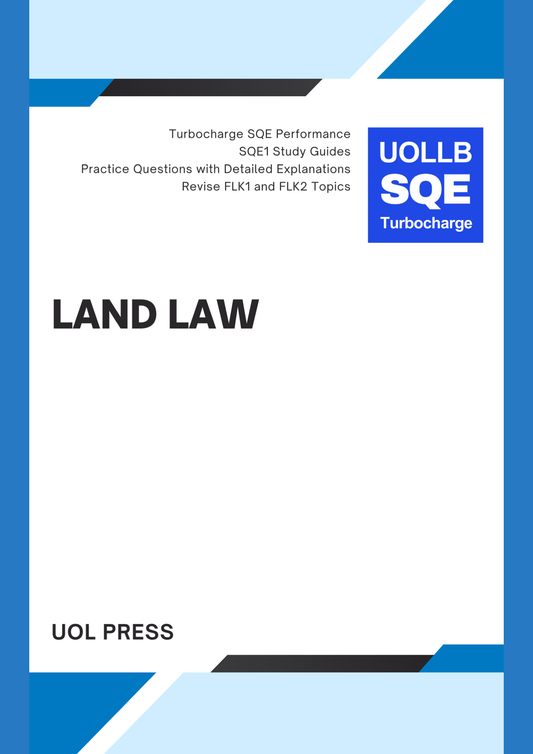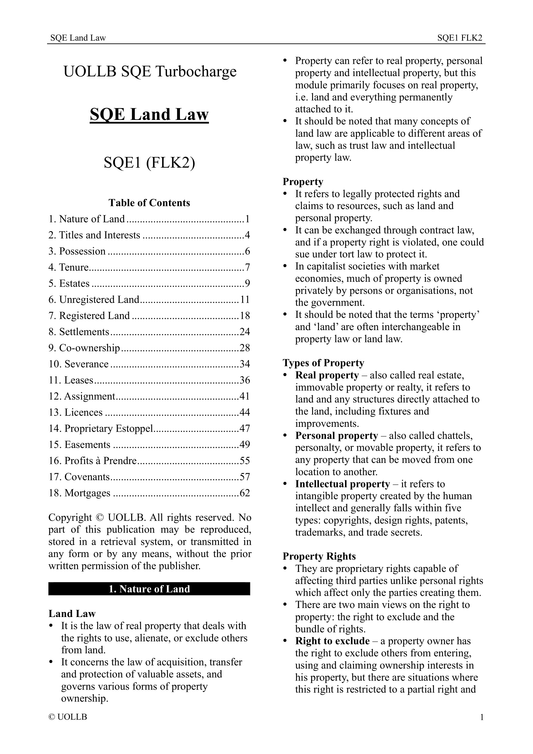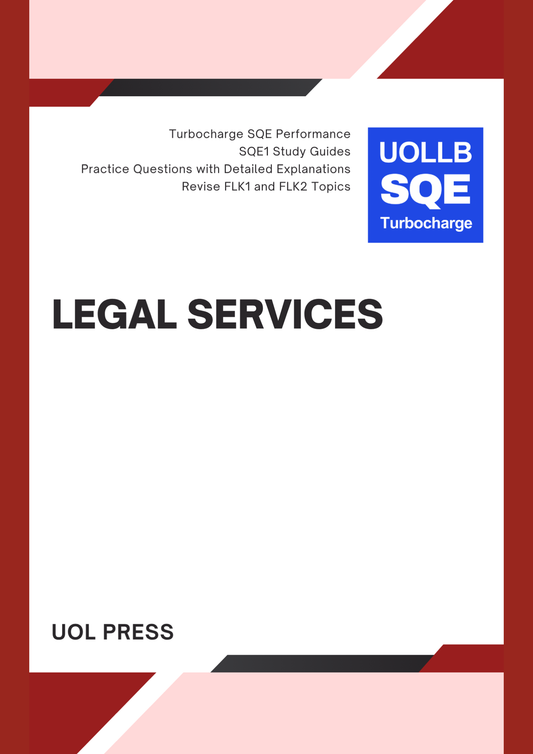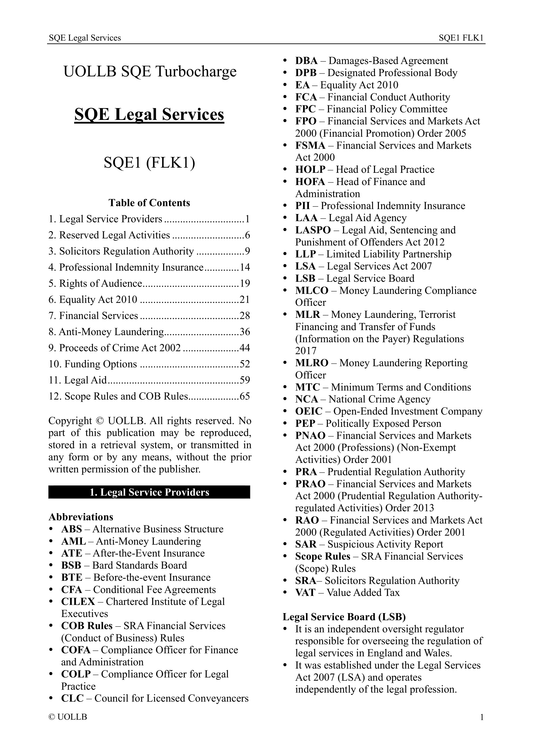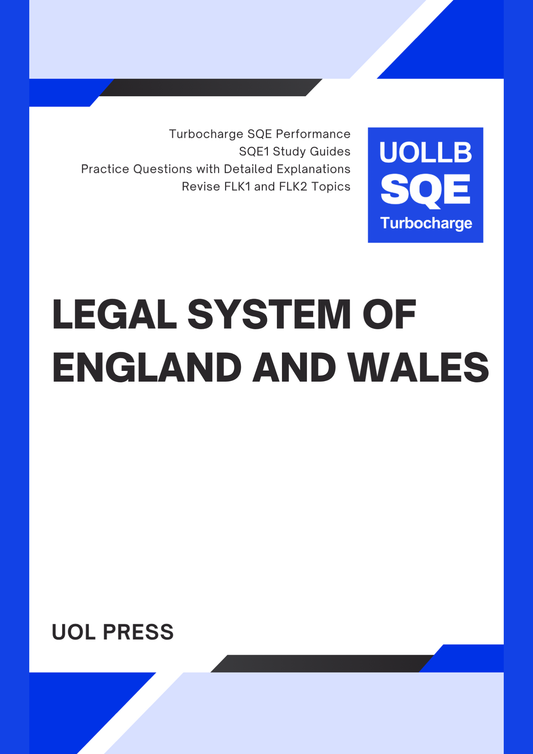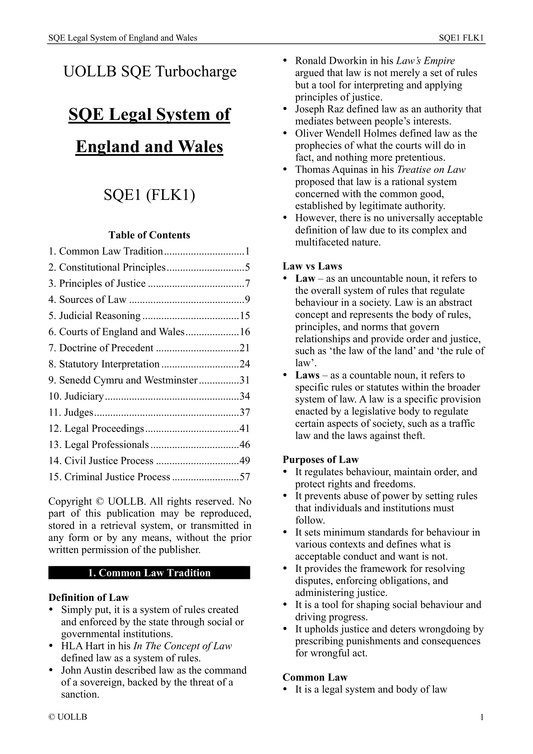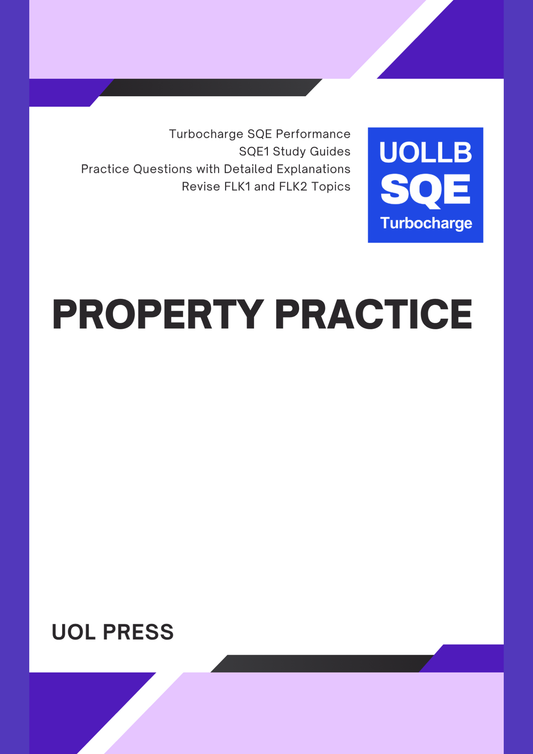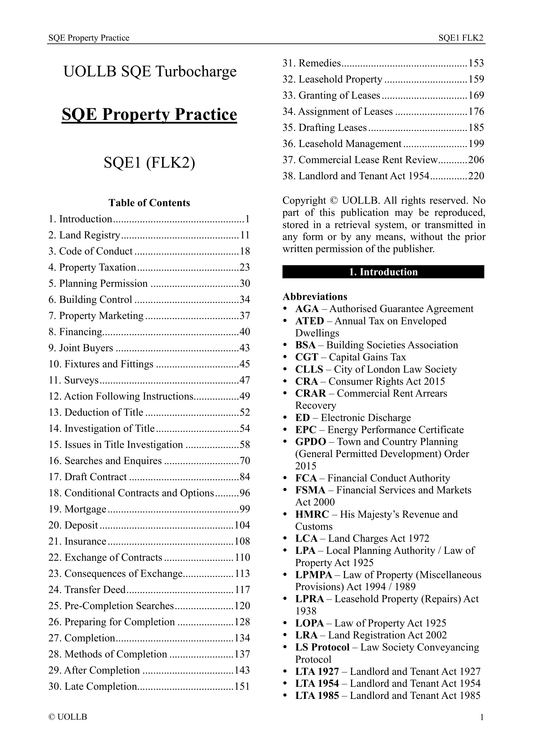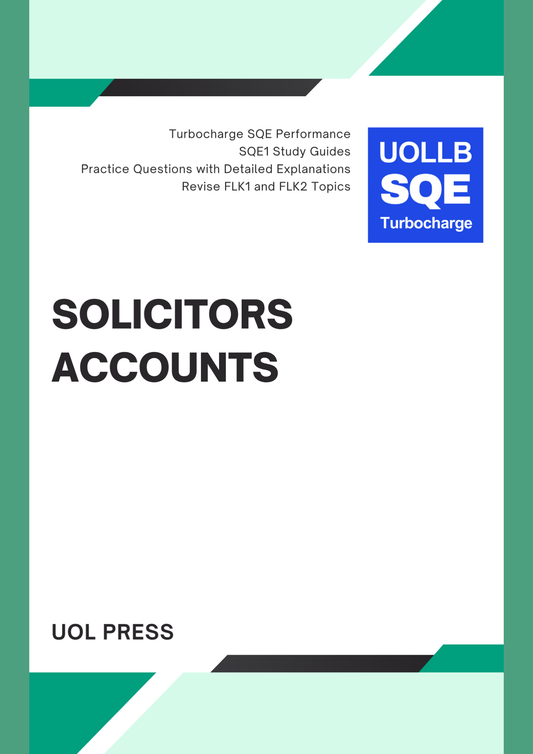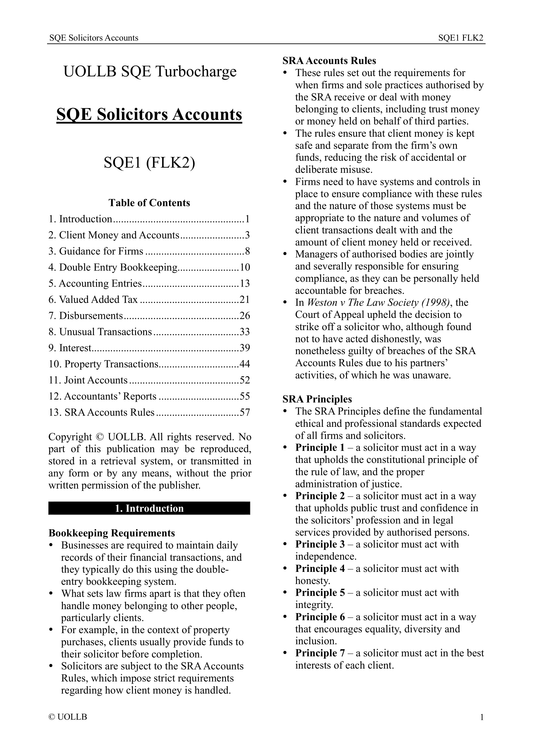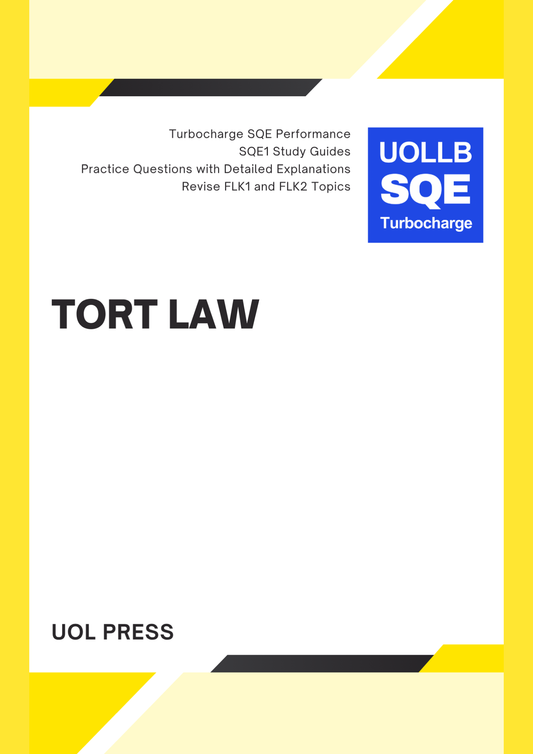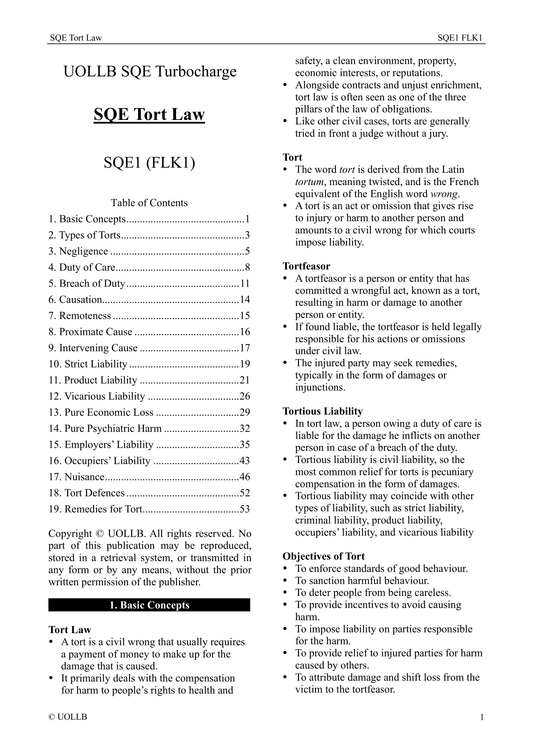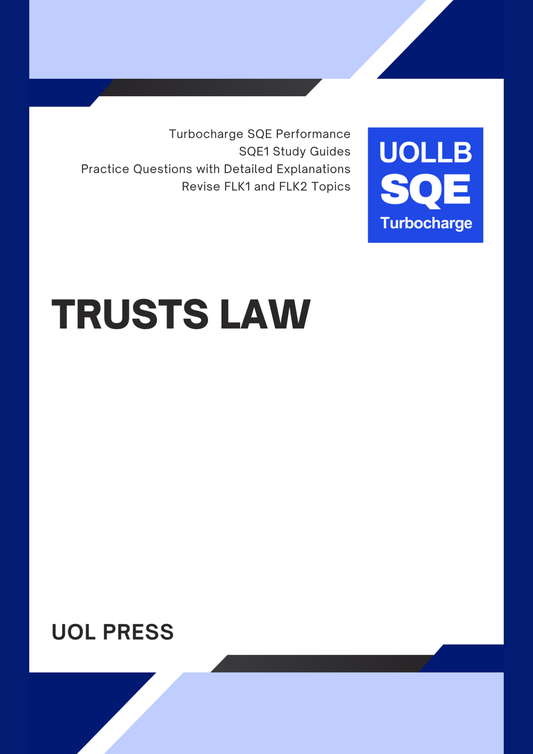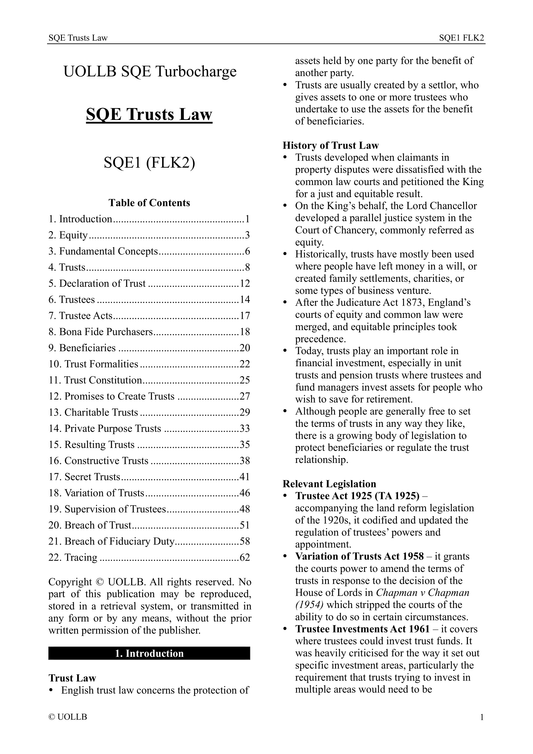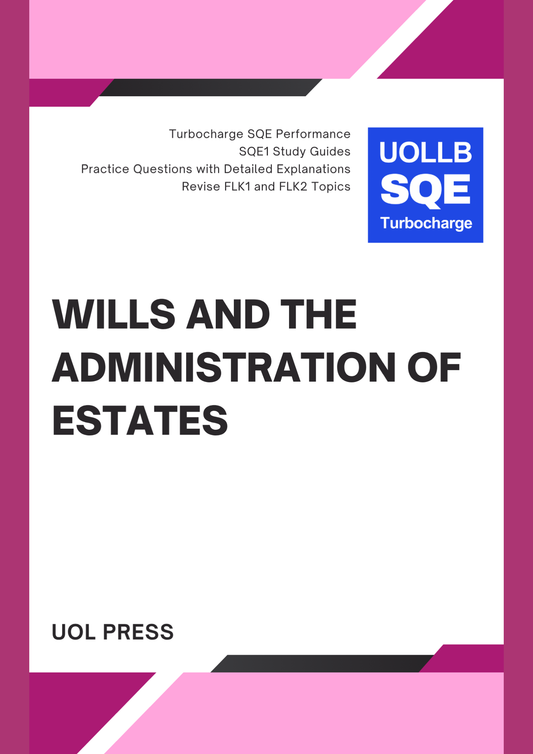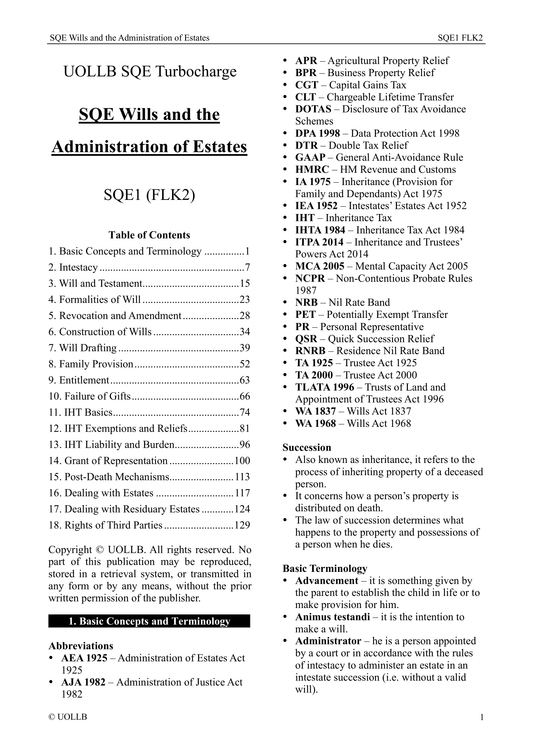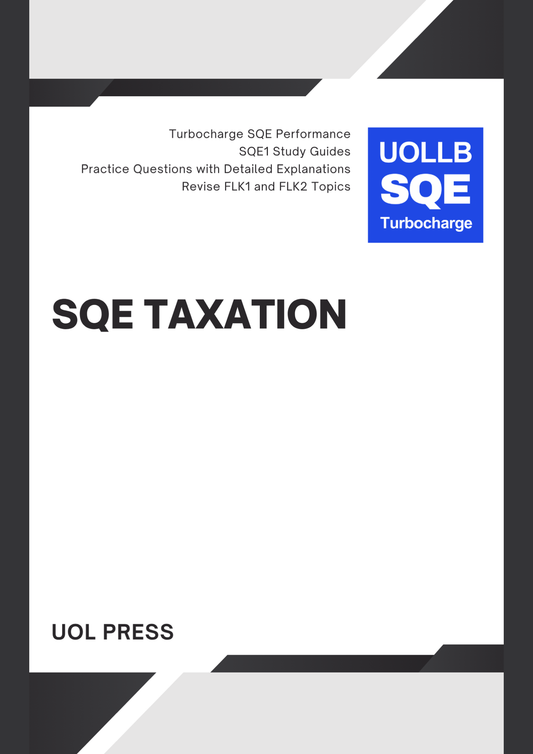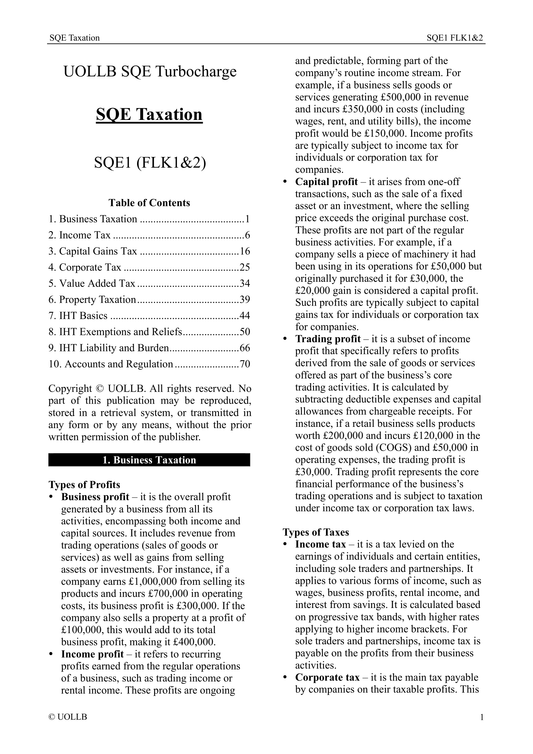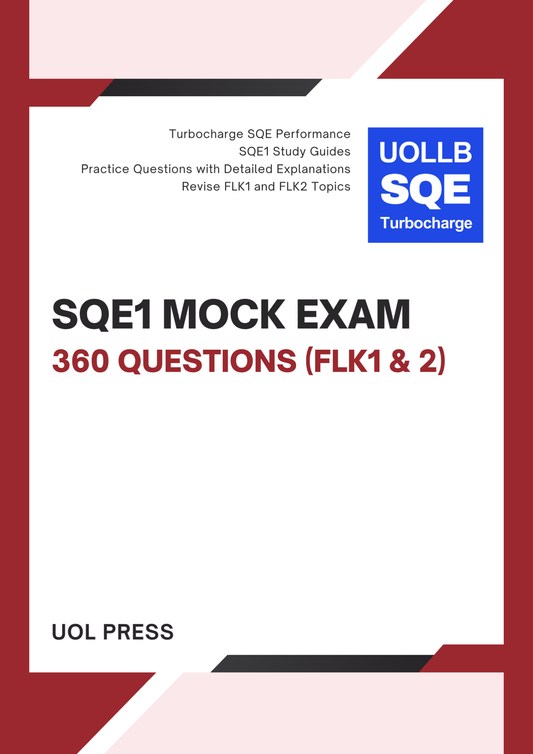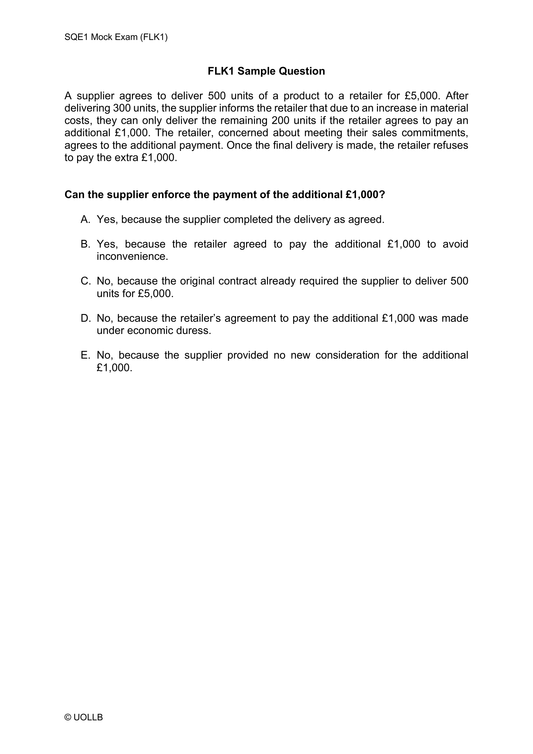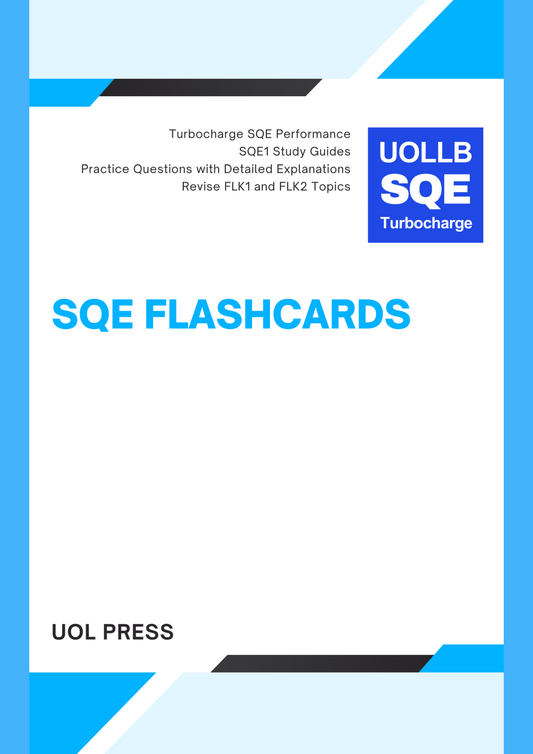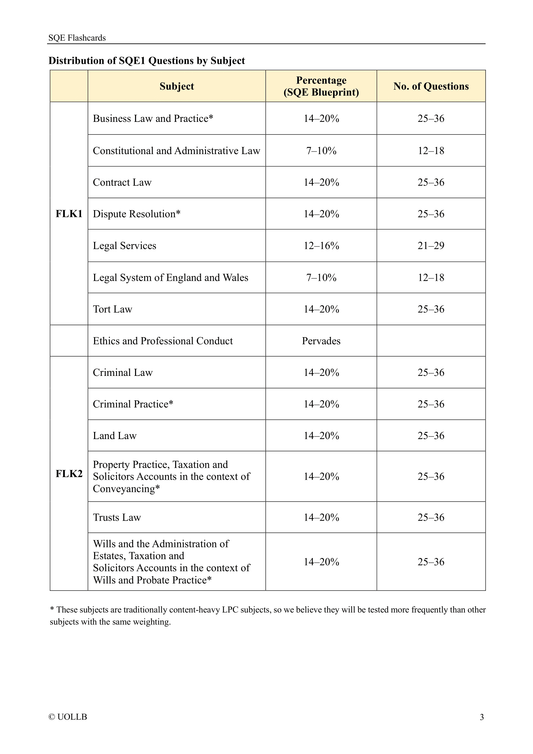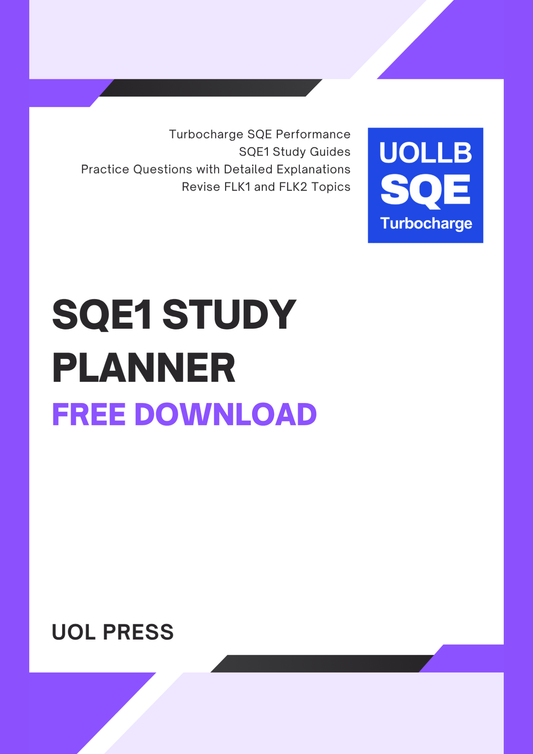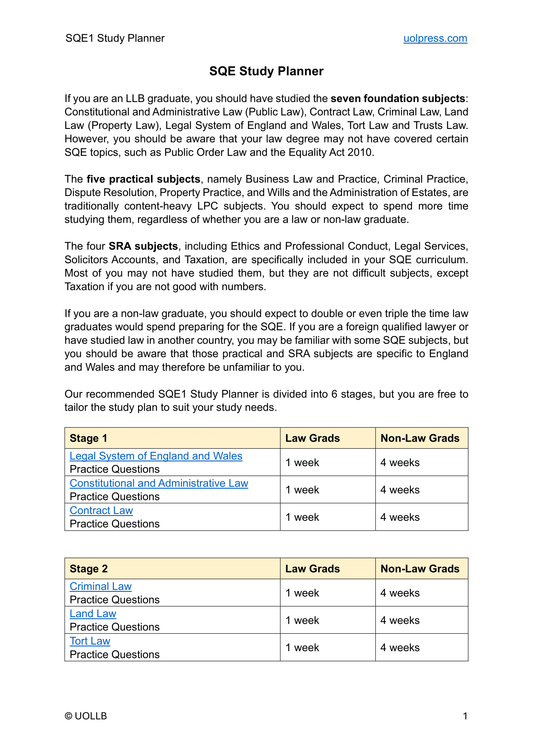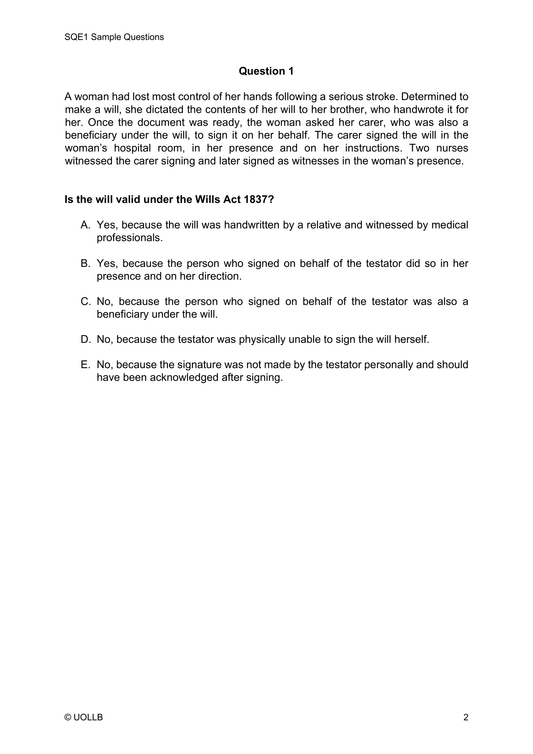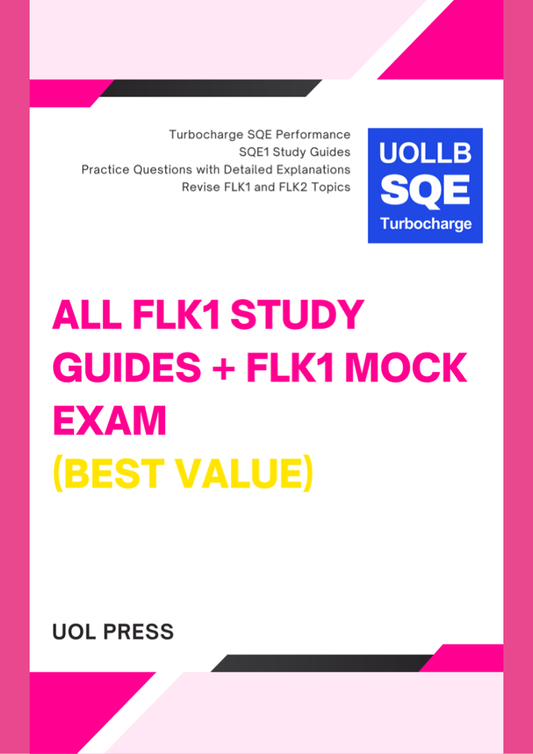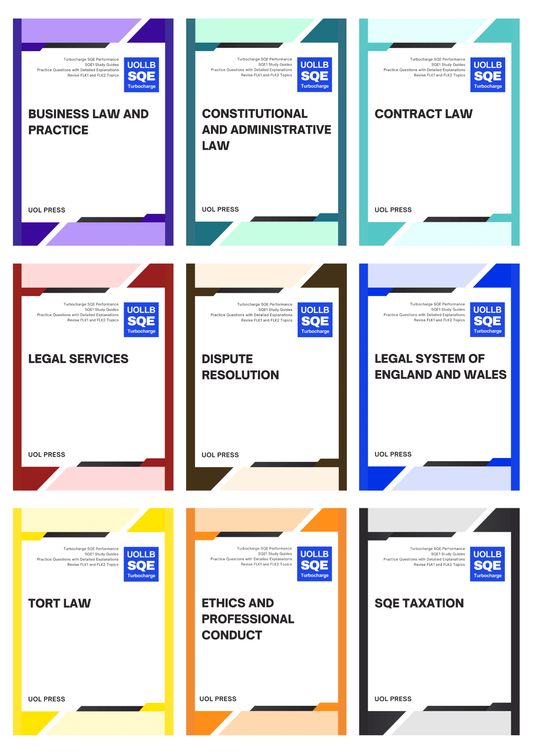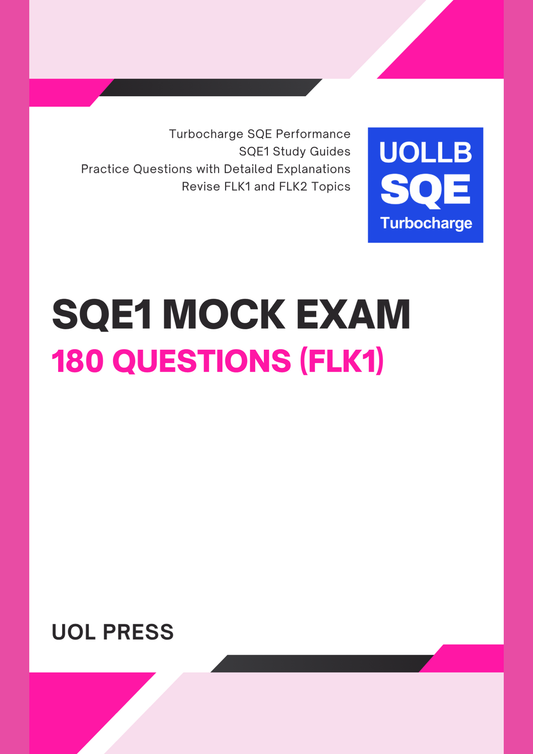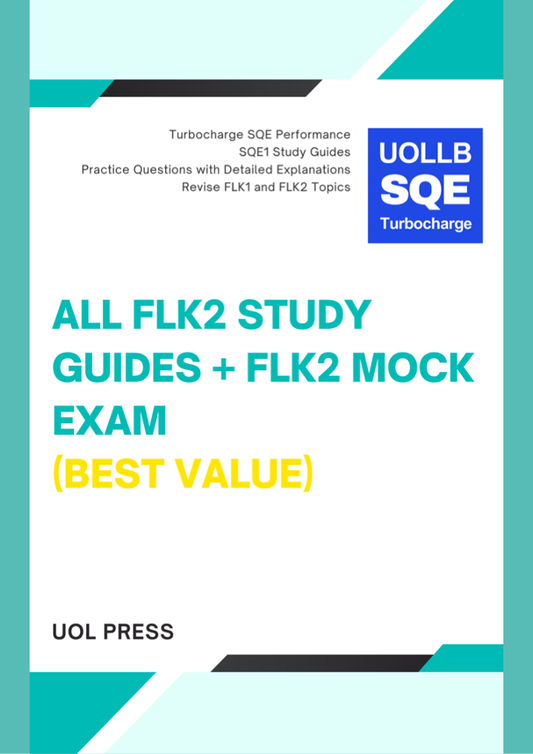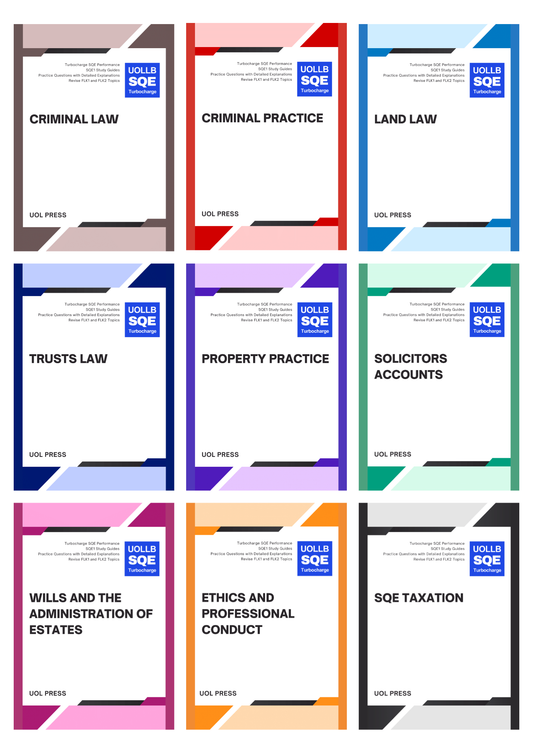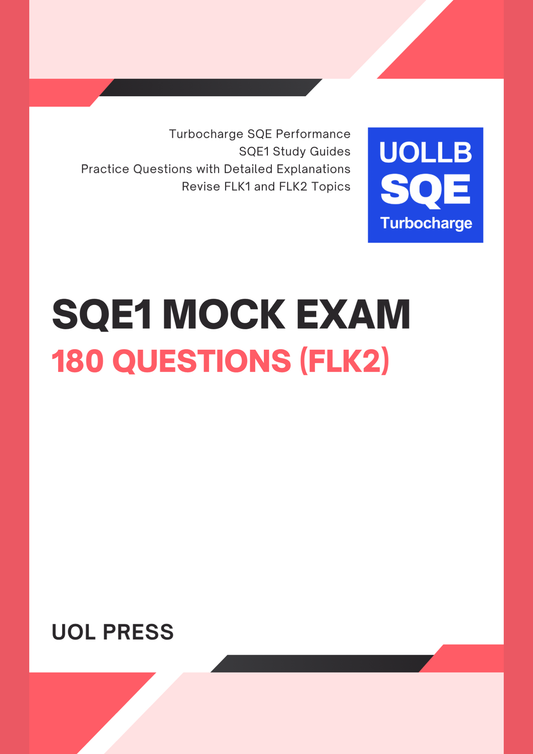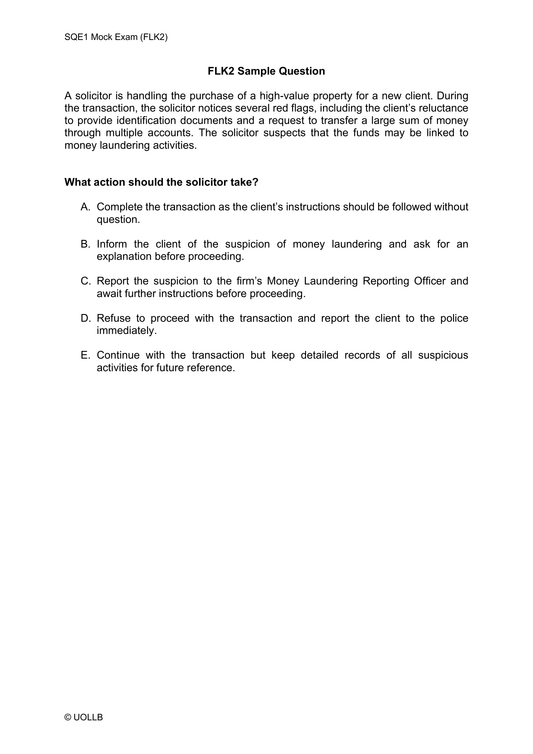Why LLB + LLM May Not Be Enough for SQE1
Share
The SQE curriculum is too extensive to be fully covered by LLB and LLM programmes combined. SQE1 tests a broad range of legal knowledge through multiple-choice questions designed to assess both academic understanding and practical application. If you have studied an LLB, you may be tempted to pursue an LLM to enhance your qualifications and for additional preparation. However, you should be aware that an LLM alone may not sufficiently cover the remaining functional legal knowledge assessed in SQE1.
A typical LLB programme cover seven foundations of legal knowledge, including Contract Law, Criminal Law, Public Law, English Legal System, Tort Law, Land Law, and Trusts Law. These subjects are undeniably relevant to SQE1 and provide a strong basis for understanding the legal system of England and Wales. However, they represent only part of the knowledge required to pass SQE1. Beyond these seven modules, SQE1 also assesses additional areas of law such as Property Practice, Business Law and Practice, Wills and the Administration of Estates, Dispute Resolution, and Criminal Practice. These subjects are not typically covered in an LLB curriculum but are nonetheless essential for the practical functioning of solicitors.
An LLM designed for SQE preparation, typically lasting one year, can help bridge some of these gaps. You will study modules aligned with the SQE syllabus, allowing you to gain exposure to areas not covered in your undergraduate studies. However, the sheer breadth of topics required for SQE1 makes it nearly impossible to cover everything in just one year. Modules such as Solicitors’ Accounts, Ethics, and Professional Conduct, which are critical components of the SQE1 assessment, often require extensive study and are unlikely to be fully addressed in an LLM programme. Attempting to cram all these subjects into a single year would not only be overwhelming but also leave significant gaps in understanding.
Given the scope of the SQE1 curriculum, it is likely that candidates with an LLB and LLM will need additional preparation to succeed in SQE1. SQE-focused courses, study guides(e.g. UOLLB SQE Turbocharge), and practice resources (e.g. SQE1 Mock Exam) are often necessary to fill in the gaps and ensure a comprehensive understanding of the material. These resources are specifically designed to address the practical requirements of the SQE, ensuring that you are fully prepared for the exam’s format and demands.
In conclusion, although an LLB provides a strong foundation and an LLM can enhance legal knowledge, they are unlikely to be sufficient on their own for SQE1. The breadth and depth of the SQE syllabus require focused preparation beyond what these qualifications can offer. You are advised to consider investing in additional courses or self-study materials tailored to the SQE to ensure you are adequately prepared to pass this rigorous assessment.
A typical LLB programme cover seven foundations of legal knowledge, including Contract Law, Criminal Law, Public Law, English Legal System, Tort Law, Land Law, and Trusts Law. These subjects are undeniably relevant to SQE1 and provide a strong basis for understanding the legal system of England and Wales. However, they represent only part of the knowledge required to pass SQE1. Beyond these seven modules, SQE1 also assesses additional areas of law such as Property Practice, Business Law and Practice, Wills and the Administration of Estates, Dispute Resolution, and Criminal Practice. These subjects are not typically covered in an LLB curriculum but are nonetheless essential for the practical functioning of solicitors.
An LLM designed for SQE preparation, typically lasting one year, can help bridge some of these gaps. You will study modules aligned with the SQE syllabus, allowing you to gain exposure to areas not covered in your undergraduate studies. However, the sheer breadth of topics required for SQE1 makes it nearly impossible to cover everything in just one year. Modules such as Solicitors’ Accounts, Ethics, and Professional Conduct, which are critical components of the SQE1 assessment, often require extensive study and are unlikely to be fully addressed in an LLM programme. Attempting to cram all these subjects into a single year would not only be overwhelming but also leave significant gaps in understanding.
Given the scope of the SQE1 curriculum, it is likely that candidates with an LLB and LLM will need additional preparation to succeed in SQE1. SQE-focused courses, study guides(e.g. UOLLB SQE Turbocharge), and practice resources (e.g. SQE1 Mock Exam) are often necessary to fill in the gaps and ensure a comprehensive understanding of the material. These resources are specifically designed to address the practical requirements of the SQE, ensuring that you are fully prepared for the exam’s format and demands.
In conclusion, although an LLB provides a strong foundation and an LLM can enhance legal knowledge, they are unlikely to be sufficient on their own for SQE1. The breadth and depth of the SQE syllabus require focused preparation beyond what these qualifications can offer. You are advised to consider investing in additional courses or self-study materials tailored to the SQE to ensure you are adequately prepared to pass this rigorous assessment.
